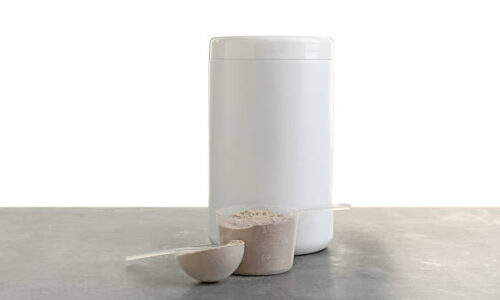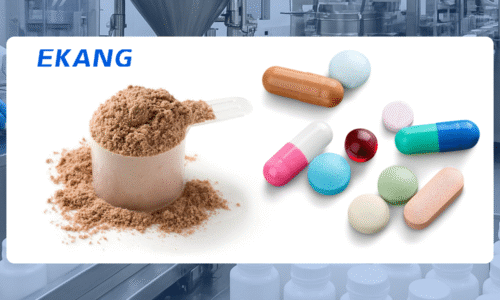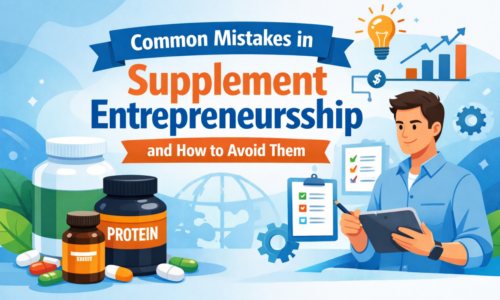
Recently, global search interest in magnesium supplements has surged, particularly in the areas of sleep support and anxiety management. According to reports from Google Trends and Nutraingredients, search terms like “magnesium glycinate sleep” and “best magnesium for anxiety” have increased by over 200% in the last three years.
This trend presents a significant opportunity for nutrition brands, but it also raises a key question: with popular forms like Magnesium Glycinate and Magnesium Citrate on the market, how can brand owners choose the most effective and competitive product?
This article will analyze this question and provide guidance from the perspective of a supplement manufacturer to help you make a strategic decision.
Magnesium’s Role in the Human Body
Magnesium is an essential mineral involved in over 300 enzymatic reactions within the body. It plays a vital role in nerve transmission, muscle relaxation, sleep quality, and emotional stability.
However, imbalanced modern diets, high-stress lifestyles, and excessive caffeine intake have made magnesium deficiency quite common. This is precisely why consumers are increasingly turning to magnesium supplements and directly linking them to improved sleep and anxiety relief.
Magnesium Glycinate: Key Characteristics
Magnesium glycinate is an organic compound where magnesium is chelated with the amino acid glycine. This unique structure gives it exceptionally high bioavailability and absorption.
Core Advantages:
- Gentle on the Stomach, Highly Absorbable: Its chelated form allows it to dissolve stably in the digestive tract, providing excellent tolerance with almost no risk of side effects like diarrhea.
- Specifically Targets Sleep and Anxiety: The glycine in this form has a calming effect, working synergistically with magnesium to help your brain and nervous system relax. This makes it an ideal choice for improving sleep quality and reducing feelings of stress and anxiety.
- Highly Versatile: It can be easily formulated into capsules, tablets, or powders. The powder form is especially popular because it dissolves well, making it perfect for custom drink mixes or sleep-aid formulas.
Why It’s a Premium Choice for Brands:
While the raw material cost for magnesium glycinate is higher, it is an essential ingredient for premium sleep and mood support supplements. It pairs perfectly with other ingredients like L-theanine, GABA, and melatonin. A good supplement manufacturer can ensure the powder is pure and dissolves easily, while also handling its sensitivity to moisture during packaging.
Magnesium Citrate: Key Characteristics
Magnesium citrate is a compound of magnesium and citric acid. Its absorption is slightly lower than that of magnesium glycinate, but it is still well-absorbed.
Key Benefits and Uses:
- Mainly for digestive health. Its primary function is as a laxative. It works by drawing water into the intestines to soften stool and stimulate a bowel movement.
- Commonly used for constipation. It’s a great choice for products aimed at relieving occasional constipation or for gut cleansing. It is not typically used to promote sleep.
- Side effects: Taking too much can easily cause diarrhea, stomach cramps, and loose stools, which is the opposite of what someone looking to relax and sleep would want.
Why brands use it:
Magnesium citrate is a low-cost, easy-to-produce raw material. It’s perfect for products focused on “digestive health” or “detox.” When manufacturing, it’s essential to control the dosage and clearly state on the label that it has a laxative effect to prevent consumers from misusing it.
Magnesium Glycinate vs Citrate
| Metric | Magnesium Glycinate | Magnesium Citrate |
| Absorption Rate | High (Chelated form with high bioavailability) | Moderate |
| Gastrointestinal Tolerance | Excellent, rarely causes GI discomfort | Lower, can easily cause diarrhea or loose stools |
| Primary Users | Those with insomnia, anxiety, high stress, or those who need long-term stable supplementation | Those with constipation, poor bowel function, or who need occasional bowel cleansing |
| Common Forms | Capsules, powders, tablets | Capsules, tablets, dissolvable drink powders |
| Raw Material Cost | Higher | Lower, more economical |
| Recommended Brand Use | Sleep/Mood Support Products | Digestive Health/Detox Products |
Scientific Evidence and Market Trends
Scientific research and market data strongly support the distinctions outlined above:
Magnesium Glycinate Research: A study published in the journal Magnesium Research showed that supplementing with magnesium glycinate significantly improved subjective sleep quality, reduced the severity of insomnia, and helped with mood regulation.
Magnesium Citrate Research: Multiple studies, such as those published in the European Journal of Gastroenterology & Hepatology, have confirmed the effectiveness and safety of magnesium citrate for treating occasional constipation.
Consumer Preference: Analysis of search behavior on Google and TikTok shows that the discussion and positive user experience around “magnesium glycinate for sleep” are far more popular than for magnesium citrate, which is more frequently associated with “digestion” and “constipation.”
How to Make a Smart Choice for Your Brand
Your decision should be based on your target market and the core needs of your audience.
Choose Magnesium Glycinate if:
- Your brand wants to enter the high-growth markets of sleep aids, mood health, and stress management.
- Your target customers are premium consumers looking for an effective, side-effect-free experience.
- You plan to develop complex formulas that combine ingredients (e.g., Magnesium + Glycine + L-theanine).
Choose Magnesium Citrate if:
- Your brand’s focus is on digestive health, regularity, or detox products.
- Your main concern is cost control, and you want to launch a more affordable, mass-market product.
- Your product is clearly labeled to relieve occasional constipation.
Formulation and Manufacturing Considerations
Formulation Type: For magnesium glycinate, sleep powders and fast-dissolving tablets are popular trends. Magnesium citrate is commonly found in capsules, tablets, and effervescent drink powders.
Choosing a Manufacturing Partner: When selecting a supplement manufacturer, make sure to evaluate their:
- Raw Material Quality Control: Do they provide purity and heavy metal test reports?
- Formulation R&D Capability: Can they offer scientifically sound, custom formulas that align with your market?
- Formulation Technology: Do they have proven experience with powder solubility and capsule stability?
- Packaging Solutions: Can they provide moisture-proof, light-resistant packaging to protect product quality?
- Certifications: Do they have quality system certifications like GMP and ISO22000 to ensure safety and compliance throughout the entire process?
As your partner in health, Ekang Nutra offers end-to-end services for all your supplement manufacturing needs. From capsules and tablets to powders and gummies, we can create a custom formula tailored to your brand. With our powerful formulation development and strict quality control, we help you bring your product to market with confidence.
Whether you’re targeting the sleep, mood, or digestive health market, our expert team is ready to support you every step of the way. Contact us today to develop your custom magnesium formula!
Magnesium Supplement FAQ
Q1: Which is better for long-term supplementation: Magnesium Glycinate or Citrate?
A: Magnesium Glycinate is a safer and more effective choice for long-term daily supplementation to support mood and sleep health. It’s known for its excellent gastrointestinal tolerance and its specific benefits for the nervous system. Magnesium Citrate, on the other hand, is better suited for short-term, targeted bowel support.
Q2: Is Magnesium Glycinate the only option for sleep and anxiety supplements?
A: While not the only option, Glycinate is widely considered the gold standard. Its unique advantage lies in its chelated structure, which provides high absorption, and the synergistic calming effect of glycine. This makes it far superior to other forms like magnesium oxide or citrate for these specific benefits.
Q3: Can these two forms be combined in a single formula?
A: Generally, this is not recommended. The two forms have different primary functions (nerve relaxation vs. bowel stimulation), and combining them could lead to conflicting effects for the consumer (e.g., trying to relax but experiencing a laxative effect). A well-designed formula should have a clear and focused purpose.
Q4: Are there any side effects to be aware of?
A: Taking excessive amounts of any magnesium supplement can lead to diarrhea. However, this is rare with Glycinate and common with Citrate. Starting with a low dose is the best way to avoid discomfort. Individuals with severe kidney disease should always consult a healthcare professional before using any magnesium supplement.









